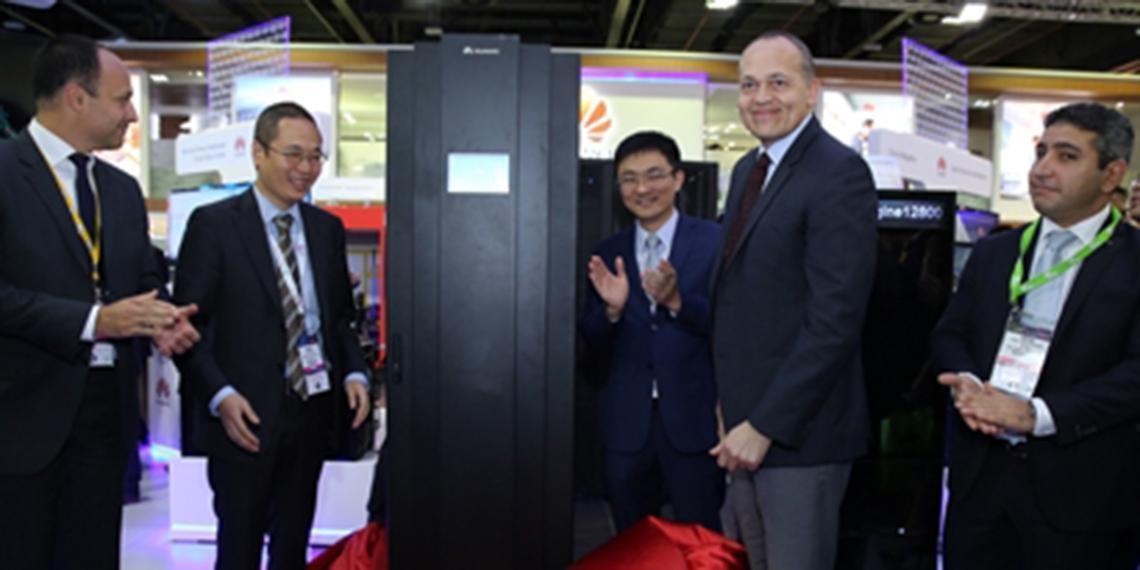Regional businesses can finally feel the power of Huawei's most advanced enterprise server, after the leading ICT provider unveiled its KunLun server for the Middle East at GITEX.
The KunLun 9032 is one of just two 32-socket servers available in the market, focusing on mission-critical computing, vital for governments and private enterprises pioneering smart and safe cities, such as Dubai.
With its most advanced server to date, brought to fruition with industry leaders SAP, Intel, SUSE, and others, Huawei has reaffirmed its commitment to the region and its most ambitious governments.
"Huawei is proud to have the regional launch of its most advanced server yet, the KunLun 9032, which was designed to enable enterprises to gain the highest performance and reliability possible for mission-critical computing that large enterprises in the Middle East depend on," said David Shi, vice president of solution sales & marketing at Huawei Enterprise Middle East. "The server is designed to deliver uninterrupted uptime to regional enterprises where server downtime can cause irreparable damage to reputation and revenue, for organizations."
The most forward-thinking governments experience the highest risk, financially, when it comes to server failure, given the speed and performance of their technologies. For example, booming tourism industries, like those in the GCC, rely heavily on online payment gateways. Downtime of just one hour on an online payment gateway can cost a business in excess of three million dirhams.
Reputation, financials and security are three fundamental areas in today's market that businesses and governments need to protect, and are the three areas most at risk when servers fail. The KunLun server is a result of Huawei's strategy to aggressively address these concerns, and demonstrate cooperative, open ecosystems that deliver industry-leading innovations.
The new server is powered by Intel Xeon E7 v4 series central processing units (CPUs) and supports mainstream databases such as SAP HANA, middleware and Operating Systems (OS) including Red Hat Linux, SUSE Linux Enterprise Server and Windows Server.
Incorporating non-RISC x86 processors, KunLun is born open. Huawei aims to build a KunLun partner alliance where Huawei joins hands with chip, operating system, database, and ISV software vendors to enable customers to move their mission critical platforms to open architectures. KunLun not only helps customers get rid of closed architectures but also reduce TCO and build open, flexible and innovative platforms for customers.











